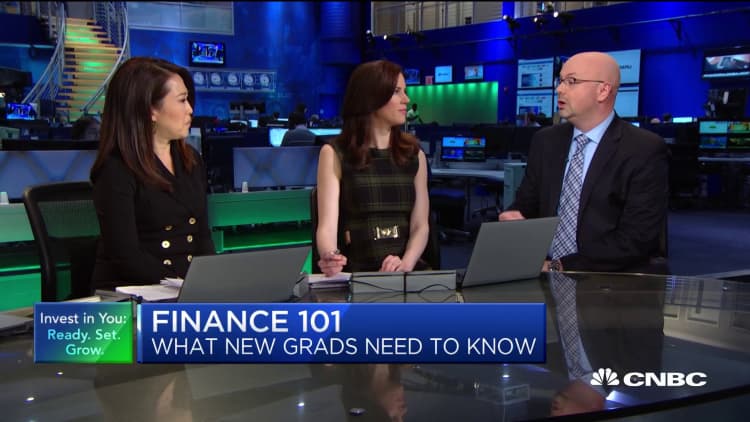
About this time each year, I expect the predictable articles proclaiming that personal finance education doesn't work.
Pundits point to poor proficiency in financial literacy "tests," and programs that show minimal change in consumer's behaviors to support their position. They assert this education is useless, ineffective and a waste of time, and we should stop spending money and effort altogether.
This either/or debate is futile. Let's get real.
Through 20 years in education, I've never seen teachers stop teaching because every learner wasn't proficient upon assessment. If students don't meet standards in math or reading, should we just give up? No. We pivot, adjust and step up our efforts.
I've been a part of the financial education community for a decade. As in any industry, there are turf wars but, mostly, there's energetic collaboration among organizations, educators and individuals with best intentions of guiding individuals toward financial capability.
More from Invest in You:
Not knowing your worth can lead to settling for less
Two investing tips to make your money work for you
How women can become financially independent
As an example, CNBC has established a Financial Wellness Advisory Council — of which I am a member — and the education initiative "Invest in You: Ready. Set. Grow," is focused on improving Americans' knowledge in the areas of saving, spending and investing.
Unfortunately, our field has been saddled with the cliché that the only thing financial education does is tell people to spend less on their lattes. But we're evolving.
Our community understands that we need broader focus on what works. Research is more robust and science is leading to improved methods of supporting people. We better understand what financial education is and isn't, and what it can and cannot accomplish.
It builds knowledge, boosts confidence and is the cornerstone for better decision making. We're not inherently born with these skills, so experience shapes our reality and timeliness matters for transactional decisions. Financial education must be reinforced throughout an economic lifetime.
I acknowledge financial education doesn't solve everything and no one should depict education as a silver bullet that creates financial well-being. There are limits.
Socioeconomic disparities hinder financial health. Education alone cannot overcome the racial wealth gap, gender pay inequality or other barriers.
While education can help people navigate the financial system as it exists, there are numerous uncontrollable factors that influence ability to apply — or not apply — what they know. Thoughtful policy and regulation, economic conditions and availability of appropriate financial services are a few of these influences.
Critics of financial education frequently characterize all efforts as a collective failure. This negates positive momentum, invalidates states that now require students take a course as a graduation requirement and discourages teachers who are passionate about personal finance.
Some data analyses lump together everything presented as "financial education" without any minimum standard for what's effective.
When you include weak programs, you get weak results. Filter out weak interventions and results show genuine strength.
Our field has been saddled with the cliché that the only thing financial education does is tell people to spend less on their lattes. But we're evolving.Billy J. Hensley,president and CEO of the National Endowment for Financial Education
The majority of what's called financial education is, in reality, just passing along financial information. While it's a building block, it does not by itself change behavior.
Our field needs to clearly articulate that financial information, education, well-being, literacy and capability coexist in one ecosystem, but the terms do not all mean the same thing. It's a development of regular exposure to education that increases knowledge and confidence, leading to increased satisfaction, and ultimately driving an individual to act in their own best interest as the current landscape allows.
Research continues to validate financial education, leading to better decision-making, heightened confidence and increased self-efficacy. If you impugn our field as being comprised of just well-meaning people providing latte and travel cost-cutting tips, then you have no understanding of what it takes to create impactful learning.
— By Billy J. Hensley, president and CEO of the National Endowment for Financial Education. Hensley is a member of CNBC's Financial Wellness Advisory Council.
Check out Don't worry about getting a perfect credit score—This score is all you need via Grow with Acorns+CNBC.
Disclosure: NBCUniversal and Comcast Ventures are investors in Acorns.





